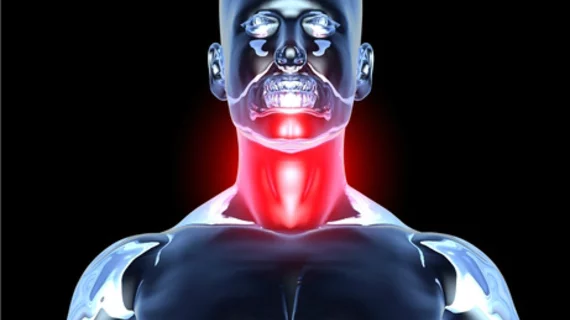5-minute neck ultrasound predicts risk of dementia before symptoms emerge
A five-minute ultrasound scan could identify a patient’s dementia risk before symptoms appear, according to a report published Nov. 12 by the BBC.
International researchers led by the University College London presented their findings at the AHA Scientific Sessions conference in Chicago on Nov. 12, hoping that it may offer a new way to predict cognitive decline. The study was co-funded by the British Heart Foundation.
Using ultrasound technology, the researchers looked at blood vessels in the necks of more than 3,191 patients in 2002. They measured the intensity of the pulse traveling towards the brain, as well as the participants' memory and problem-solving skills, over the following 15 years.
Study findings demonstrated those with more intense pulses were 50 percent more likely to experience greater cognitive decline and have greater dementia risk over the next decade compared to the rest of the participants.
Read the BBC’s entire article below.

